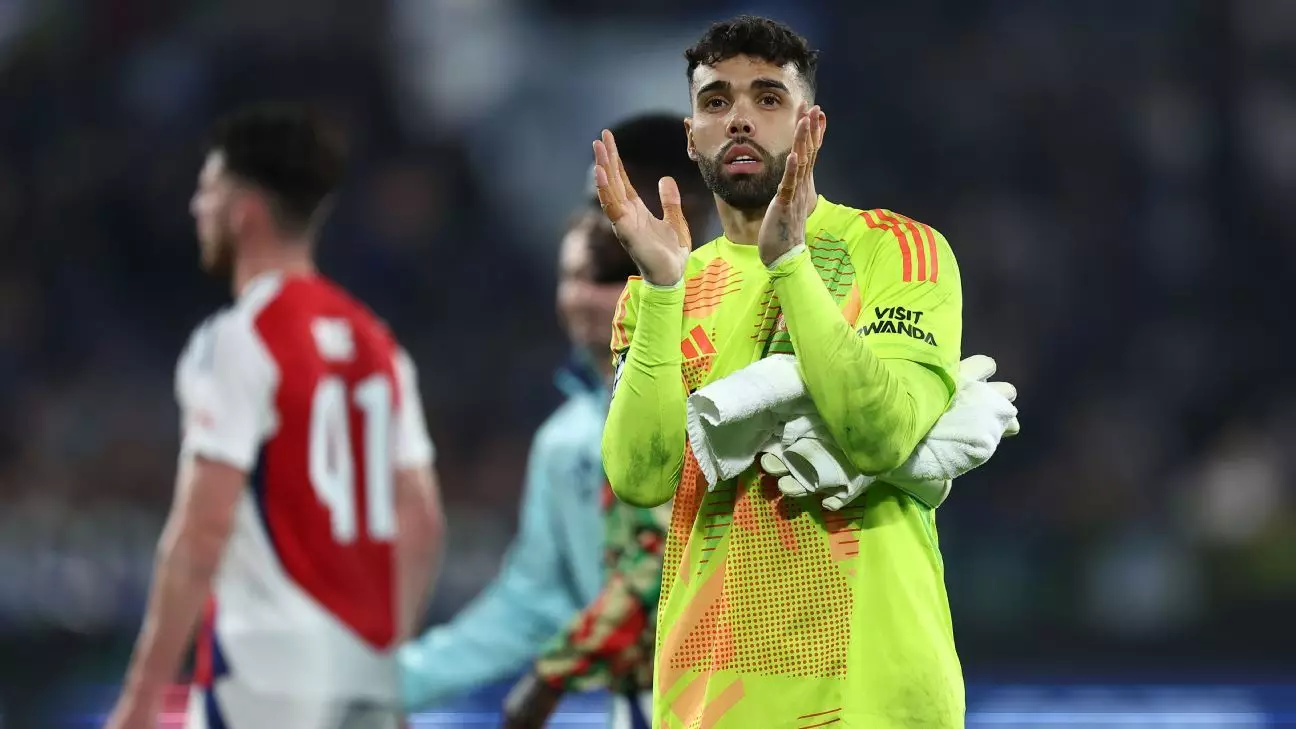Arsenal’s quest in the UEFA Champions League commenced with a stalemate against Atalanta at the Gewiss Stadium in Bergamo. The 0-0 draw highlighted both teams’ defensive resilience while exposing Arsenal’s ongoing struggles in the final third. As the competitive atmosphere of Champions League football enveloped the stadium, both sides found themselves unable to convert opportunities into goals, raising questions about their offensive capabilities. This article delves into the match dynamics, evaluating both teams’ performances and identifying key areas for Arsenal to work on in their campaign.
In the lead-up to the match, anticipation surrounded Mikel Arteta’s game plan against Atalanta, a side known for its attacking prowess. As the match unfolded, it became evident that Arteta prioritised a strong defensive shape over aggressive pressing or expansive attacking football. The Gunners appeared compact, giving Atalanta little space to operate in advanced positions, which largely neutralized their offensive threats. Yet, while the defensive framework shone, the lack of creativity and incisiveness going forward was glaring.
At the heart of Arsenal’s defensive performance was goalkeeper David Raya, whose heroics, particularly following a missed penalty from Mateo Retegui, kept Arsenal’s goal intact. Raya’s superb double save not only salvaged the point but also underscored the saying, “a good goalkeeper is worth his weight in gold.” Arsenal’s defensive four—comprised of Ben White, William Saliba, Gabriel, and the debuting Jurrien Timber—proved to be resilient, thwarting Atalanta’s occasional advances, particularly crucial for preserving morale and structure.
Despite their solid defensive outings, Arsenal’s attacking players struggled to carve out real scoring chances, illustrating a concerning trend for the season ahead. Bukayo Saka emerged as a bright spot with a well-placed free-kick force save from Atalanta’s goalkeeper. However, his overall contributions during the match seemed muted, as he frequently vanished from the game’s more dynamic moments. Gabriel Jesus, tirelessly working up front, faced a similar fate; he led the line without making a notable impact before being substituted.
Gabriel Martinelli had perhaps the clearest opportunity for Arsenal in the second half but disappointingly fired over the bar after receiving a well-timed through ball from Raheem Sterling. Martinelli’s missed chance reeks of the frustrations that have plagued Arsenal in high-stakes games—a lapse that could easily have swung the match in their favor. The inability to finish in crucial moments may haunt Arsenal as they navigate the high-pressure matches that the Champions League entails.
Despite the attacking deficiencies, certain players stood out in defensive roles. Declan Rice performed ably, delivering a commendable display in midfield by linking both defense and attack effectively. His quick decision-making and positional awareness helped snuff out potential threats and support attack transitions. William Saliba and Gabriel demonstrated excellent one-on-one dueling skills while maintaining crucial communication at the back.
Ben White’s performance was also noteworthy; his tactical awareness enabled him to contribute offensively while providing necessary support at the back. Jurrien Timber, though box-fresh in the Champions League, showed no signs of being overwhelmed by the occasion and displayed poise beyond his years. However, the collective success of the defense juxtaposed against the struggles forward paints a complex picture—one that demands further development as the tournament continues.
As Arsenal exits their opening match of the Champions League with a hard-earned point, there are mixed feelings surrounding their performance. On one hand, the team’s defensive solidity and Raya’s instrumental saves offer a strong foundation for future fixtures. Conversely, the lack of cutting-edge forward play highlights that significant improvements are necessary if they are to challenge for silverware in the league and Europe.
This match serves as a lesson—a crucial reminder that the depth of a team’s capabilities is tested when they step onto the European stage. For Arsenal, it’s not just about maintaining defensive integrity but also evolving their attacking strategy. The early stages promise room for growth; if Arteta can harness both the defensive strength and ignite the offensive firepower, Arsenal could very well progress from this group with aspirations to reach the later stages of the tournament. Ultimately, the journey is just beginning, providing plenty of opportunities for learning and development as they pursue their Champions League ambitions.
